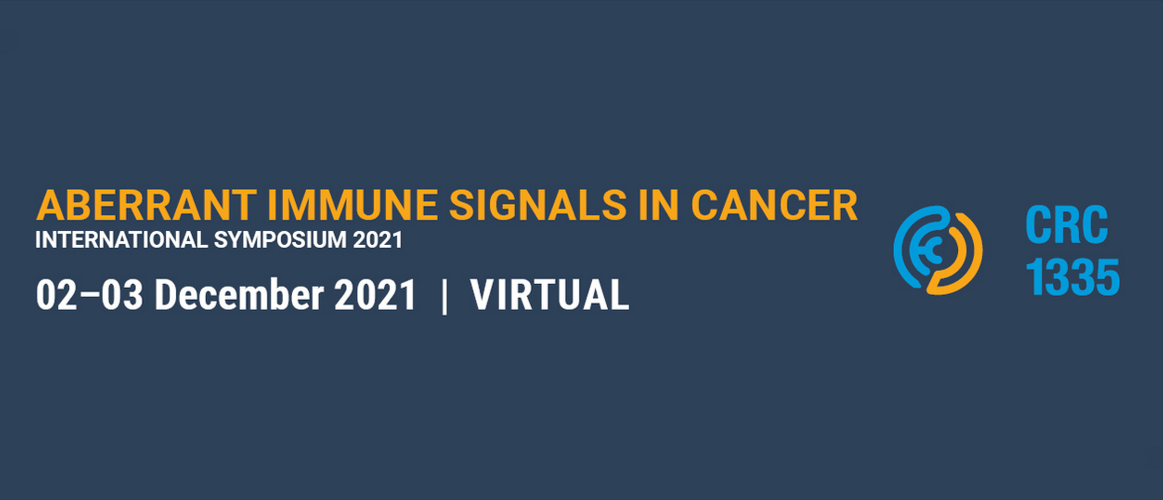
Dear Colleagues,
The field of immuno-oncology has introduced novel concepts for the treatment of cancer, that harness the power of the immune system to detect and destroy malignant cells. However, dysfunctional signals in the immune system can suppress antitumor immune responses and drive the development of cancer by creating tumor-promoting inflammatory environments. Moreover, oncogenic mutations within immune cells that deregulate immune receptor signaling pathways are frequent causes of leukemias and lymphomas.
To address key questions and current concepts on tumor-immune-cell interactions, mechanisms of malignant lymphocyte transformation and ongoing efforts that exploit immune signals for cancer therapies, we will bring together world-leading immunologists and cancer researchers. Furthermore, the event will cover state-of-the-art technologies that explore immune function and metabolism in cancer at the organism, tissue, and cellular level.
We are very much looking forward to welcoming you at our symposium.
With best wishes,
Jürgen Ruland
Spokesperson of the CRC 1335
On behalf of the organizing Committee:
Florian Bassermann, Maike Buchner, Mathias Heikenwälder, Veit Hornung, Hendrik Poeck, Jürgen Ruland, Marc Schmidt-Supprian
1:00 pm | WelcomeJürgen Ruland |
Immune Metabolism in Cancer | Chairs: Mathias Heikenwälder, Julia Jellusova |
| 1:10 pm | Ping-Chih Ho Friend or foe: lipid metabolism in tumor-associated macrophages |
| 1:40 pm | Theodore Alexandrov Spatial single-cell metabolomics reveals metabolic cell states |
| 2:10 pm | Russel Jones Environmental impact on T cell metabolism |
2:40 pm | Break |
Immune Signals and Targets in Lymphoma | Chairs: Maike Buchner, Julia Hauer |
| 3:00 pm | Teresa Palomero Mechanisms of Transformation in Peripheral T-cell Lymphomas |
| 3:30 pm | Salvia Jain Biomarkers of response and resistance to CD47-SIRPa immunotherapy in T-cell lymphomas |
| 4:00 pm | Ari M. Melnick Epigenetic mechanisms driving transformation of the immune system |
4:30 pm | Break |
Immune Recognition of Cancer Cells | Chairs: Barbara Schraml, Simon Heidegger |
| 4:50 pm | Timothy Chan How Immune Cells Recognize and Target Tumor Cells |
| 5:20 pm | Michael Hölzel Exploring Principles of T-cell Therapy in Melanoma |
| 5:50 pm | Caetano Reis e Sousa Keynote Lecture Necrophagia, DaNGeRous Indigestion and Immunity to Cancer |
Innate Immunity and Inflammation in Cancer | Chairs: Dieter Saur, Marc Schmidt-Supprian |
| 1:00 pm | Triantafyllos Chavakis Trained Granulopoiesis in Cancer |
| 1:30 pm | Florian Greten Cell Plasticity in Colorectal Carcinogenesis |
| 2:00 pm | Andrea Ablasser Sensing DNA as a Danger Signal Through the cGAS-STING Pathway |
2:30 pm | Break |
| Immune Recognition of Cancer Cells | Chair: Oliver Weigert, Hendrik Poeck |
| 2:50 pm | Andy J. Minn Decoding and Recoding the Opposing Roles of Interferon and Pattern Recognition Receptor Signaling in Cancer Immunotherapy |
| 3:20 pm | Nir Hacohen Keynote Lecture Cell types, States and Programs Unnderlying Human Immune Response |
4:15 pm | Closing RemarksFlorian Bassermann |
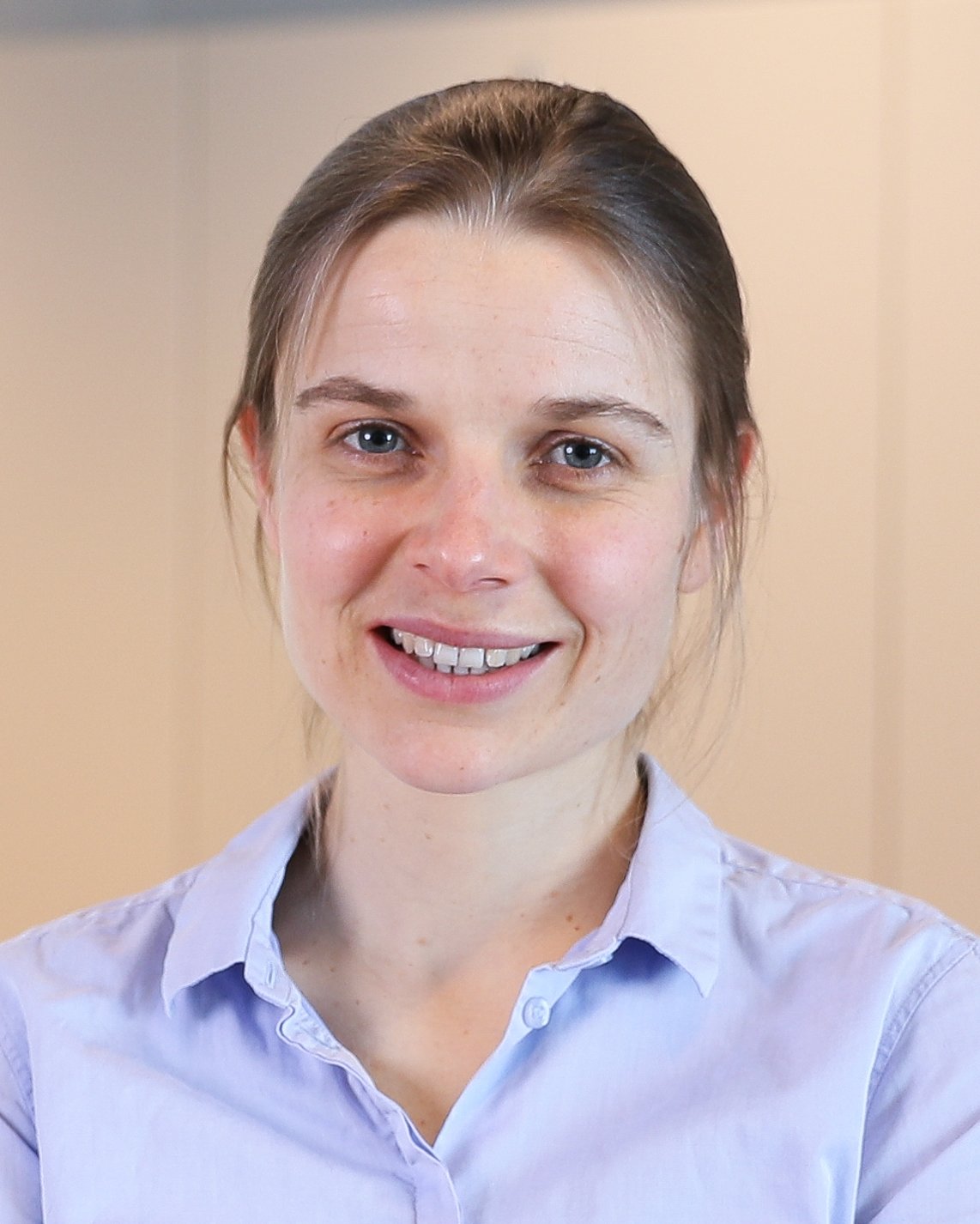
Andrea Ablasser
Ablasser Lab - Innate Immunity
École polytechnique fédérale de Lausanne
Lausanne, Switzerland
Andrea obtained her MD at the University of Munich. After her post-doc at the University of Bonn, she joined EPFL as an assistant professor in 2014. Since 2021 Andrea is Full Professor at EPFL. Her research focuses on mechanisms of innate immunity. She played a major role in deciphering how cells respond to intracellular DNA as a signal of infection via the so- called cGAS-STING pathway - a fundamental discovery, which paved the way for promising new immunotherapies. Amongst several distinctions, Andrea Ablasser is recipient of the William B. Coley Award, the EMBO Gold Medal, the Sanofi-Institut Pasteur Award, the National Latsis Prize, the ACTERIA Prize, and the Eppendorf Award, and she is an elected member of EMBO. She is the founding scientist of IFM Due, a biopharmaceutical company developing cGAS-STING antagonists for the treatment of inflammatory disorders.
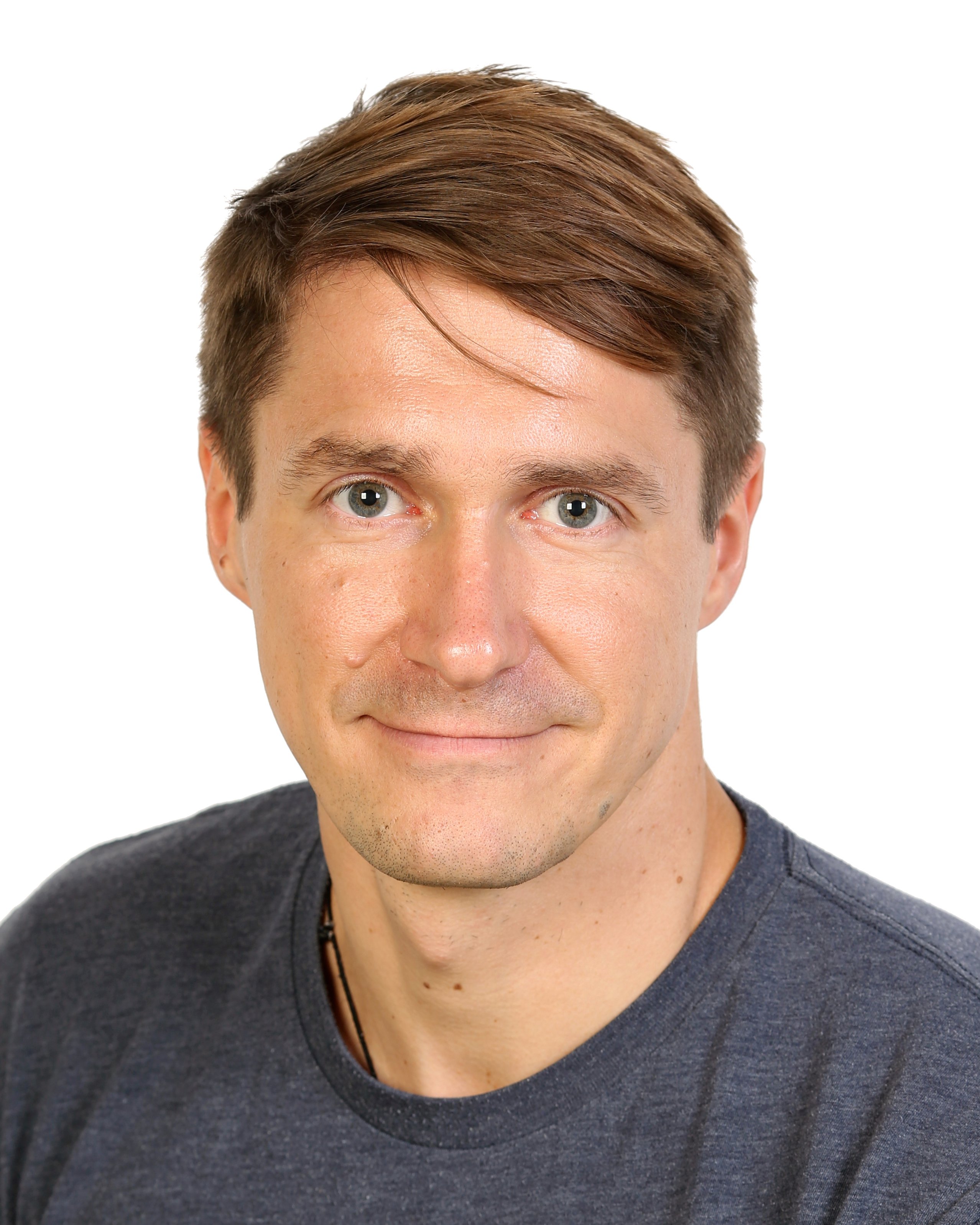
Theodore Alexandrov
Spatial and single-cell metabolomics
European Molecular Biology Laboratory (EMBL)
Heidelberg, Germany
Theodore Alexandrov is a team leader at the European Molecular Biology Laboratory (EMBL), the Europe’s leading life science laboratory. He is also the head of the EMBL Metabolomics Core Facility and an Assistant Adjunct Professor at the Skaggs School of Pharmacy, University of California San Diego, USA. The Alexandrov team(link is external) at EMBL aims to reveal the secrets of metabolism in time and space in tissues and single cells by developing experimental and computational methods. The team unites interdisciplinary scientists from biology, chemistry, and computer science as well as software engineers and data analysts. The developed computational methods are integrated into various open-source and industrial software packages. Since 2014, the team develops and provides for free the cloud software METASPACE(link is external) for metabolite ID in imaging mass spectrometry, used by universities, governmental organizations, and pharma companies. Theodore Alexandrov is a grantee of an ERC Consolidator project focused on studying metabolism in single cells, as well as of various other European, national, NIH, and industrially-funded projects. He has co-founded and scientifically directed the company SCiLS and has over 90 journal publications and 6 patents in the field of spatial and single-cell -omics.
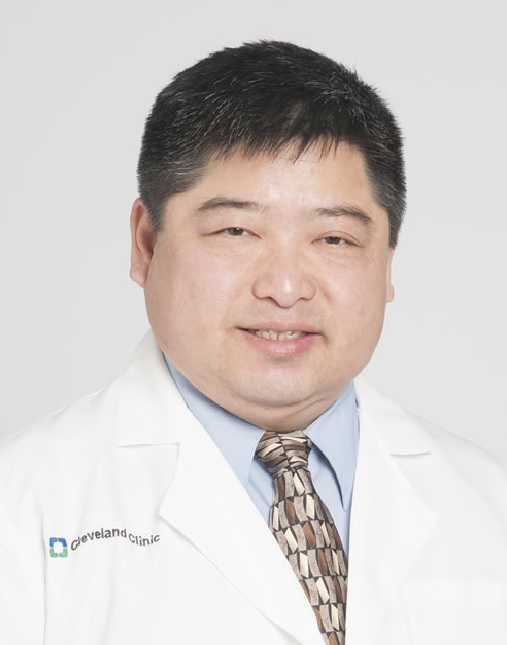
Timothy Chan
Center for Immunotherapy and ImmunoOncology
Cleveland Clinic
Cleveland, United States
Timothy A. Chan MD, PhD is a Physician-Scientist, Staff, Professor and Attending Physician at Cleveland Clinic and Case Comprehensive Cancer Center. Dr. Chan received his MD and PhD in cancer genetics, completed a residency in radiation oncology and finished a fellowship at the Johns Hopkins School of Medicine.
Dr. Chan is Chair and Founding Director of the Center of Immunotherapy and Precision Immuno-Oncology at Cleveland Clinic’s Lerner Research Institute. The newly established center focuses on immunotherapy research and developmental therapeutics, while bringing together multidisciplinary experts from across the Cleveland Clinic enterprise. The Chan laboratory specializes in using genomic analysis to characterize the drivers of genetic programs underlying immunotherapy and oncogenesis. These approaches include large-scale analyses, functional genomics, immunogenomics, biochemical and molecular analyses and mouse modeling. The lab has a special interest in deciphering the mechanisms underlying immunotherapy treatment response and resistance. Outside of the Chan lab and research aspects, Dr. Chan is an integral part of the clinical team within Cleveland Clinic, Taussig Cancer Institute.
Before joining Cleveland Clinic, Dr. Chan was the Paine Webber Chair in Cancer Genetics, a tenured Professor, Director of the Immunogenomics Program and Vice Chair of the Department of Radiation Oncology at Memorial Sloan Kettering and Weill Cornell School of Medicine for over a decade.
Dr. Chan has published over 200 articles in peer-reviewed journals including Nature, Science, The New England Journal of Medicine, Cell and numerous others. He has made instrumental discoveries throughout his research in immunotherapy. Earning him international recognition as an expert in precision immuno-oncology, a true pioneer in the field of genomics, as well as leading the way in tremendous breakthroughs in the personalization of cancer care and treatment.
Dr. Chan serves on the scientific advisory board for Cell and the Frederick National Laboratory/National Cancer Institute. He is an NCI Outstanding Investigator and an elected member of the American Association of Physicians (AAP). Dr. Chan also wears the hat of co-director of the National Center for Regenerative Medicine of Case Western Reserve University.
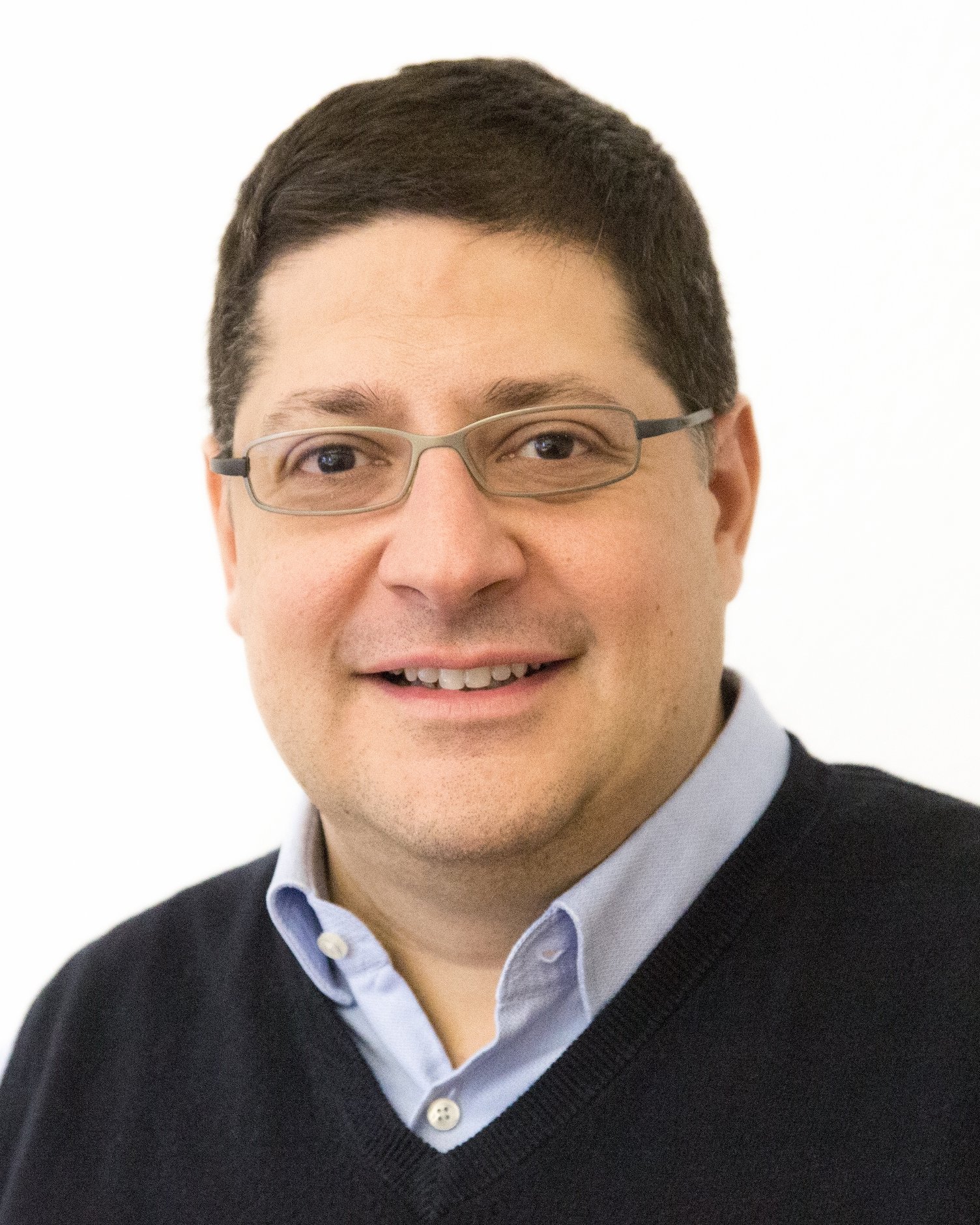
Triantafyllos Chavakis
Paul Langerhans Institute Dresden
Technische Universität Dresden
Dresden, Germany
Prof. Dr. T. Chavakis is a physician-scientist and director of the Institute for Clinical Chemistry and Laboratory Medicine of the University Clinic Dresden since 2017. He was a principal investigator and head of the Inflammation Biology Section of the Experimental Immunology Branch, National Cancer Institute, NIH, Bethesda MD from 2005-2010. His research focuses on Innate Immunity and Metabolic Inflammation. Specifically, his lab aims at identifying mechanisms that are involved in the regulation of inflammation in the context of metabolic-inflammatory pathologies (obesity-related insulin resistance and NAFLD), inflammatory bone loss and cancer. A further focus is on innate immune cell generation (myelopoiesis) and activation in the context of trained innate immunity (a form of innate immune memory).
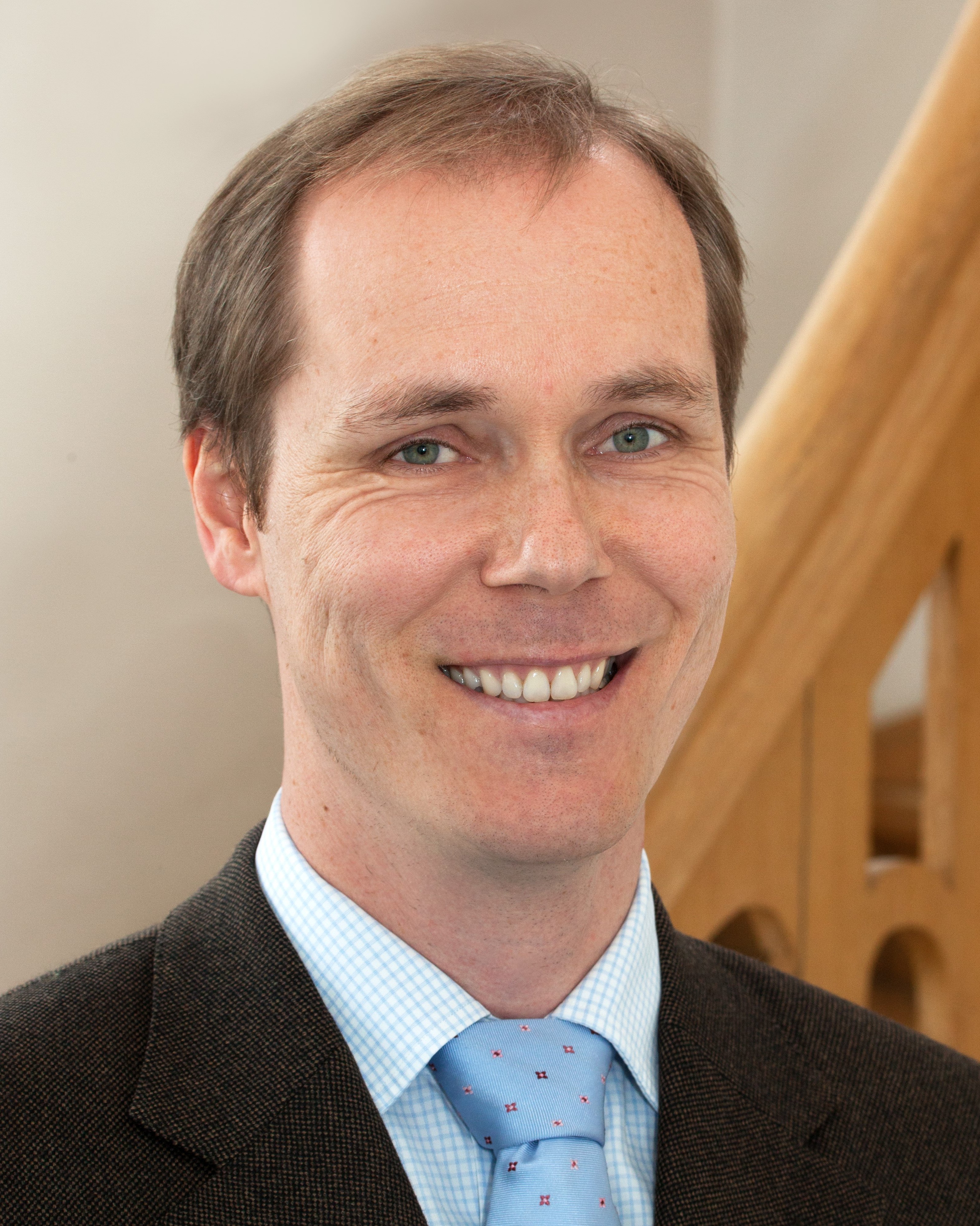
Florian Greten
Institute for Tumor Biology and Experimental Therapy
Georg-Speyer-Haus
Frankfurt, Germany
Prof. Greten’s research activities intend to dissect the cellular and molecular changes in the tumor microenvironment that support gastrointestinal tumor growth. Using genetically modified mice as well as state-of-the art organoid technologies key signal transduction pathways are functionally examined to identify novel therapeutic targets and vulnerabilities to overcome therapy resistance of GI tumors.
Prof. Greten studied medicine in Hamburg and Vienna and received his medical degree in 1998 in Hamburg followed by the start of his clinical and scientific training in internal medicine at the University Hospital of Ulm. From 2000 to 2004 he worked as a Post-Doctoral Fellow at the University of California, San Diego. After returning to Germany he built his own independent research group at the Klinikum rechts der Isar, Technical University Munich funded by the Emmy-Noether program of the German Science Foundation (DFG). In 2010 he became Professor of Molecular Gastrointestinal Oncology at the Technical University Munich. Since August 2013 he is Chair of Tumor Biology at the Medical Faculty Goethe University and Director of the Georg-Speyer-Haus, Institute for Tumor Biology and Experimental Therapy. He has received various prestigious scientific awards and grants including an ERC Starting Grant in 2011 and an ERC Advanced Grant in 2021 as well as the German Cancer Award in 2012. He is member of the “Hinterzartener Kreis der DFG für Krebsforschung” and acts currently as Chair of the Fachausschuss “Klinische Forschung und kliniknahe Grundlagenforschung der Deutschen Krebshilfe”, Speaker of the DFG Research Unit 2438 on Cell Plasticity in Colorectal Cancer and Speaker of the LOEWE Center Frankfurt Cancer Institute., Frankfurt“.
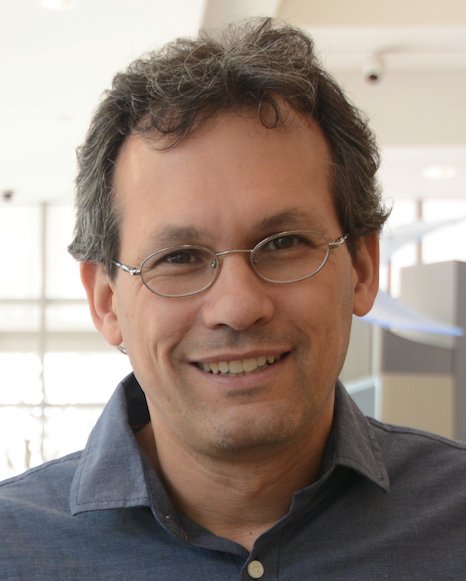
Nir Hacohen
Center for Cancer Immunology, Massachusetts General Hospital
Broad Institute of MIT and Harvard
Boston, United States
By bringing the powerful methods of human genetics and genomics to the study of the immune system and cancer immunology, Dr. Hacohen has contributed to the development of the field of systems immunology. As the founder of the Broad Genetic Perturbation Platform and Functional Genomics Consortium, he and his colleagues created powerful methods to perturb genes in mammalian cells. He leads a group of immunologists, geneticists, biochemists, technologists and computational biologists to develop unbiased strategies to dissect immune responses in health and disease, and develop predictive and personalized approaches to medicine. His group addresses several major questions. How are immune responses against cancer initiated, maintained and evaded? What are the immune circuits that sense and control pathogens, such as viruses and bacteria? How does immunity against the body develop in autoimmune-prone tissues in lupus patients? His group also develops unbiased analytical strategies to develop novel real-world therapeutics, with completed and ongoing human clinical trials of personal neoantigen vaccines based on a computational analysis of the personal tumor genome.
Dr. Hacohen is the Director of the Center for Cancer Immunology at Massachusetts General Hospital, and the David P. Ryan Professor of Medicine at Harvard Medical School. He is the Director of the Center for Cell Circuits at the Broad Institute of MIT and Harvard. Dr. Hacohen is a recipient of the NIH Director’s Innovator award, the MGH Scholars Award and the Martin Prize. He completed his Ph.D. at the Stanford Biochemistry and was a Whitehead Institute Fellow prior to joining MGH and Broad.
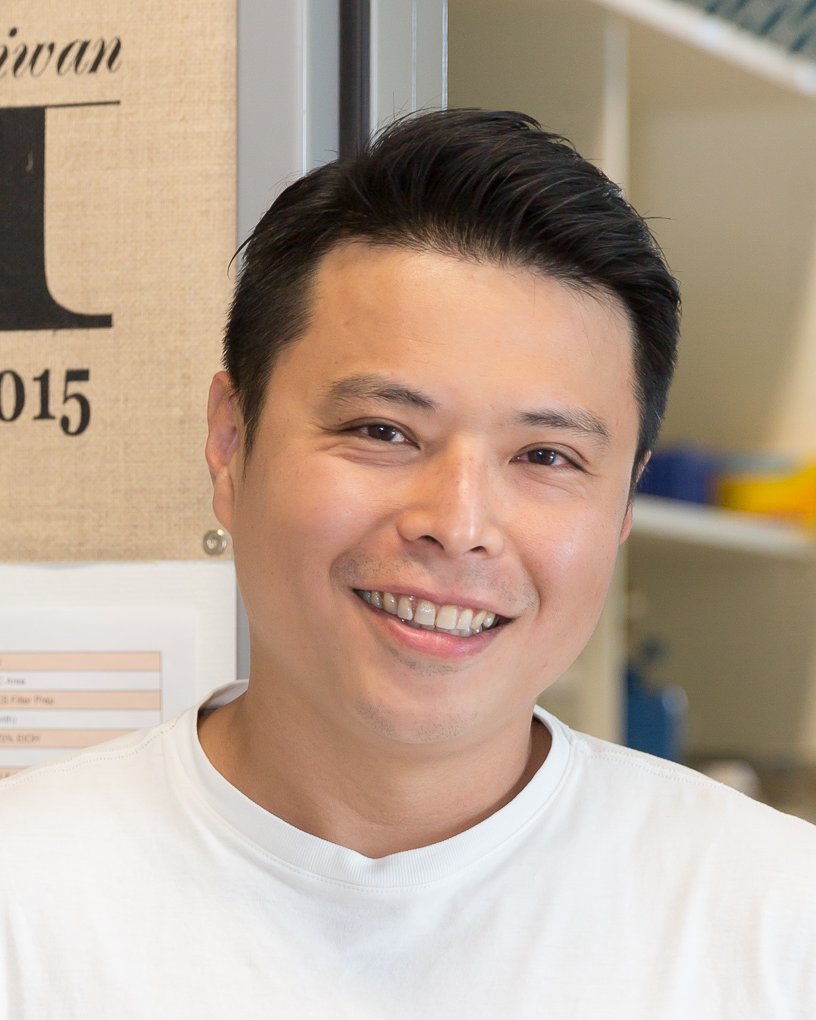
Ping-Chih Ho
Department of Fundamental Oncology, University of Lausanne
Lausanne, Switzerland
Ludwig Institute for Cancer Research
Epalinges, Switzerland
Ping-Chih Ho is a cancer immunologist with particular research interest in immunometabolism, the tumor microenvironment and viral infection. My ultimate goal is to exploit our findings to better harness our immune system in fight against infection and malignancy. In addition, I also envision to reprogram the tumor microenvironment, reverse immunosuppression and broaden and boost the efficacy of cancer immunotherapy.
Ping-Chih Ho grew up in Taiwan and obtained his basic biomedical training, including bachelor degree (Life Science) and master degree (Biochemical Science), at National Taiwan University. He then obtained his PhD in Department of Pharmacology at University of Minnesota. Ping-Chih then did postdoctoral training with Susan Kaech at Yale University, where he demonstrated how cancer cells evade T cell immunosurveillance by depriving infiltrating T cells of glucose, which is consumed in large amounts by malignant cells. In September 2015, he relocated to Switzerland as a tenure-track assistant professor in the Department of Oncology at the University of Lausanne and act as an adjunct scientist at the Ludwig Institute for Cancer Research. Ping-Chih was promoted as a tenured associate professor at the University of Lausanne in August 2019 and promoted to Associate Member at the Ludwig Institute for Cancer Research in January 2020. Ping-Chih's research is also supported by University of Lausanne, the European Research Council, the Cancer Research Institute, the Swiss National Science Foundation, the Melanoma Research Alliance, the Swiss Cancer League, Harry J. Lloyd Fund, Anna Fuller Fund, the ISREC foundation. His research is also acknowledged by several international awards, including the CRI Lloyd J. Old STAR Award, EMBO Young Investigator award, MRA-SITC Young Investigator award, MRA Established Investigator Award, CRI CLIP-investigator award, and the Swiss Bridge Award.
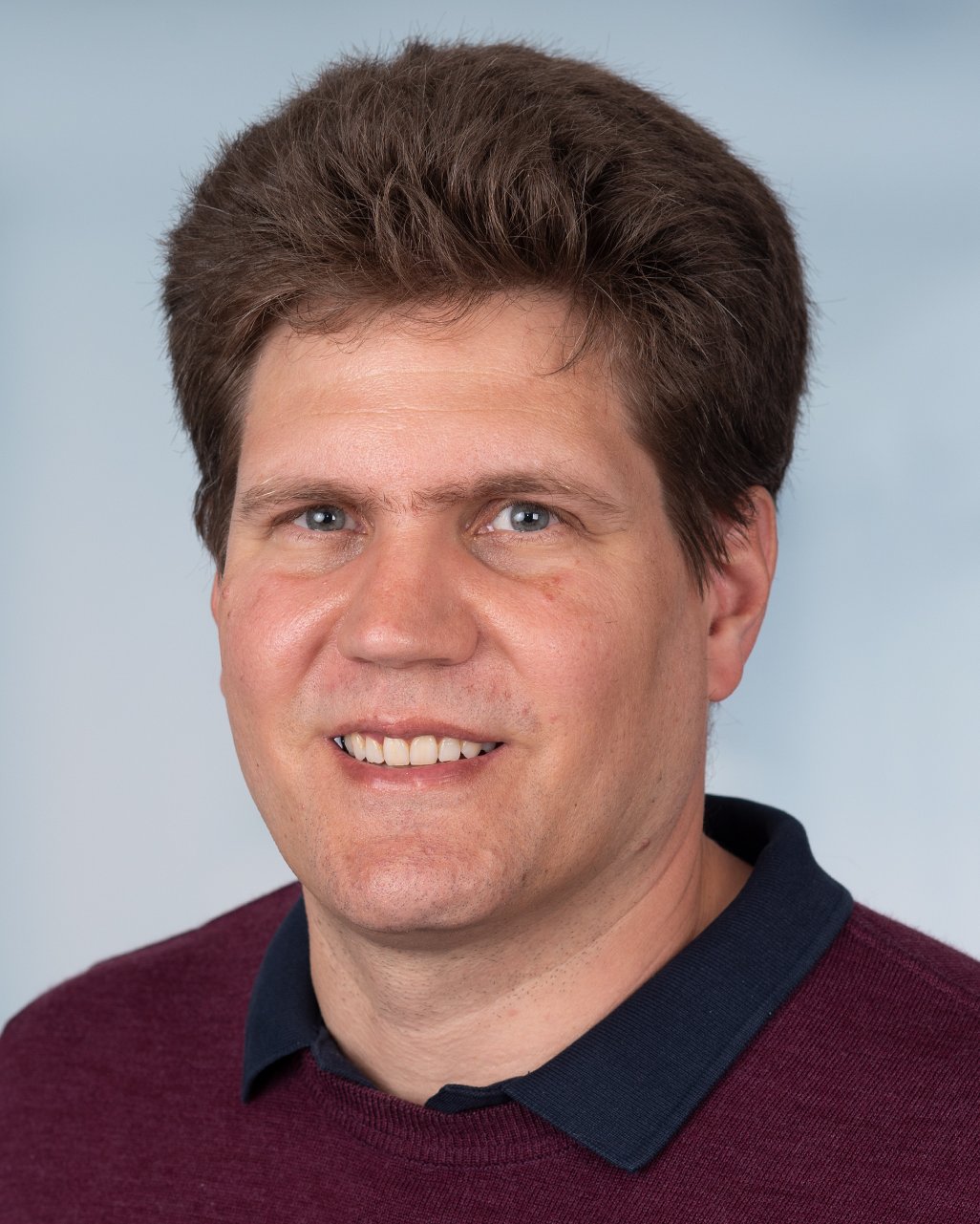
Michael Hölzel
Institute of Experimental Oncology
University Hospital Bonn
Bonn, Germany
In 2003, Michael Hölzel graduated from Medical School at the Ludwig-Maximilians University (LMU) in Munich, Germany. At the same time, he worked on his MD doctorate thesis (2004) in the laboratory of Prof. Dirk Eick at the Helmholtz Zentrum München focusing on the biological functions of the c-Myc oncogene. After a residency in hematology and oncology in the medical department III (Prof. Wolfgang Hiddemann) of the Klinikum Grosshadern (LMU Munich), in 2007 he moved on to become post-doctoral research fellow at the Netherlands Cancer Institute in the group of Prof. René Bernards, where he studied drug resistance mechanisms in different cancer types by genetic screening. In 2012, Michael Hölzel took a new position as a W2 professor for RNA biology the University of Bonn at the Institute of Clinical Chemistry and Clinical Pharmacology (Prof. Gunther Hartmann), where he started to focus on the tumor microenvironment and cancer immunity in the framework of the Bonn cluster of excellence ImmunoSensation. Since 2019, Michael Hölzel is the director (W3 professorship) of the newly founded interdisciplinary Institute of Experimental Oncology at the University Hospital Bonn. His key research interests are i) tumor cell plasticity, inflammation and therapy resistance, ii) novel principles of adoptive cell transfer therapy and iii) deep spatial phenotyping of the human tumor microenvironment for prediction of immunotherapy responses.
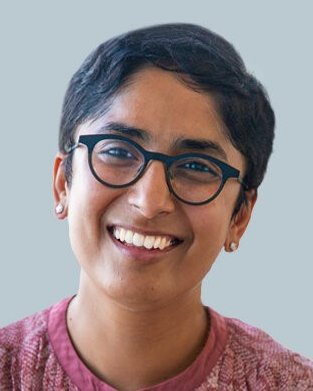
Salvia Jain
Cancer Center & Department of Hematology/Oncology
Massachusetts General Hospital
Boston, United States
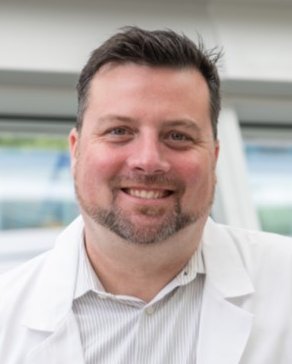
Russel Jones
Cancer and Immunometabolism
Van Andel Institute
Grand Rapids, United States
Dr. Russell Jones is a leading expert in the study of metabolism and immunology. As professor and Chair of the Department of Metabolism and Nutritional Programming at the Van Andel Institute (VAI), his work seeks to uncover how cancer cells and immune cells fuel themselves through metabolic interactions, with the ultimate goal of developing new approaches for immunometabolic therapy.
Dr. Jones obtained his Ph.D. in Medical Biophysics in 2003, training under Dr. Pamela Ohashi at the University of Toronto. Dr. Jones conducted postdoctoral research with Dr. Craig Thompson at the University of Pennsylvania, where he first began exploring how metabolism fuels cancer cell growth. Formerly an Associate Professor and director of the Metabolomics Core facility at McGill University (2008–2018), Dr. Jones moved to the VAI in 2018 to establish a new program in Metabolism and Nutritional Programming, where he has expanded his research focus beyond cancer biology and immunology to study the impact of metabolic control networks on other disease processes, bringing in neuroscience and epigenetics. Among his 100 publications (h-index: 60; i10-index: 87), Dr. Jones has published several papers in high-impact journals (Science, Immunity, Cell, and Cell Metabolism) investigating the role of metabolic regulation in cancer cell growth and T cell function. At McGill University, Dr. Jones was lead or co-investigator on several nationally-funded grants from the Canadian Institutes of Health Research (CIHR) and the Terry Fox Research Institute (TFRI) and is currently funded by the Paul G. Allen Foundation.
Dr. Jones has earned numerous accolades throughout his career, including a New Investigator Award from the CIHR, the Bernard and Francine Dorval Prize from the Canadian Cancer Society, and several teaching awards at McGill University. He was named a William Dawson Scholar of McGill University in 2014 and elected to the College of New Scholars, Artists and Scientists of the Royal Society of Canada in 2015. He is currently an Allen Distinguished Investigator in Immunometabolism (2020).
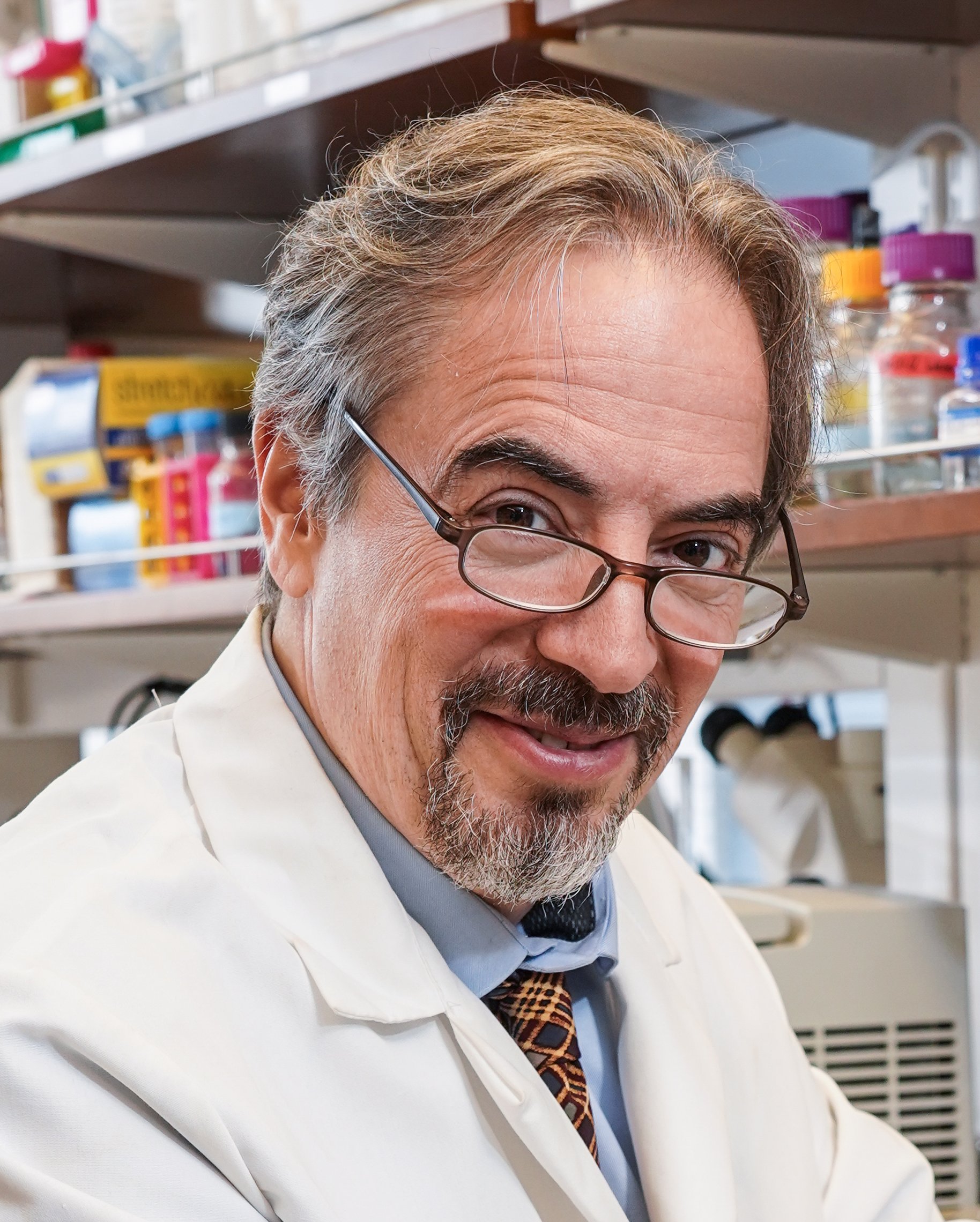
Ari M. Melnick
Department of Medicine/Pharmacology
Hematologic Malignancies Program
Sackler Center for Biomedical and Physical Sciences
Weill Cornell Medicine
New York, United States
Ari M. Melnick, MD, is Gebroe Family Professor of Hematology/Oncology in the Departments of Medicine and Pharmacology at the Weill Cornell Medical College in NewYork City. He is chair of the Hematologic Malignancies Program of the Weill Cornell Cancer Center, Director of the Sackler Center for Biomedical and Physical Sciences at Weill Cornell. He has chaired a number of international meetings in hematology, cancer and epigenetics. He has authored or co-authored more than 250 manuscripts in journals such as Nature, Science, Cell, Cancer Cell, Nature Medicine, Nature Immunology and the New England Journal of Medicine. Dr. Melnick’s research is focused on discovering transcriptional and epigenomic mechanisms that drive lymphoid and myeloid neoplasms and harnessing these mechanisms for development of novel drugs and therapeutic regimens for cancer patients. This has led him to early on apply methodologies such as HiC, etc to explore how sets of genes become coordinated during the immune response and disrupted in cancer. Dr. Melnick uses two general approaches to study these mechanisms. On the one hand his group performs focused biochemical and biological mechanistic research on specific transcriptional and epigenetic modifiers that play key roles in normal and malignant tissues. He has used this work to design novel kinds of therapeutic agents including the first rationally designed transcription factor inhibitor as well as to translate to the clinic specific targeted therapies in a more precise manner. In the second approach Dr. Melnick uses the tools of systems biology and high throughout genomics to explore how the epigenome is perturbed in human patients with disease. Along these lines he performed the first organized and comprehensive epigenome mapping in human disease. These studies have expanded to include an international network and over 3000 patients enrolled in various large-scale clinical trials.
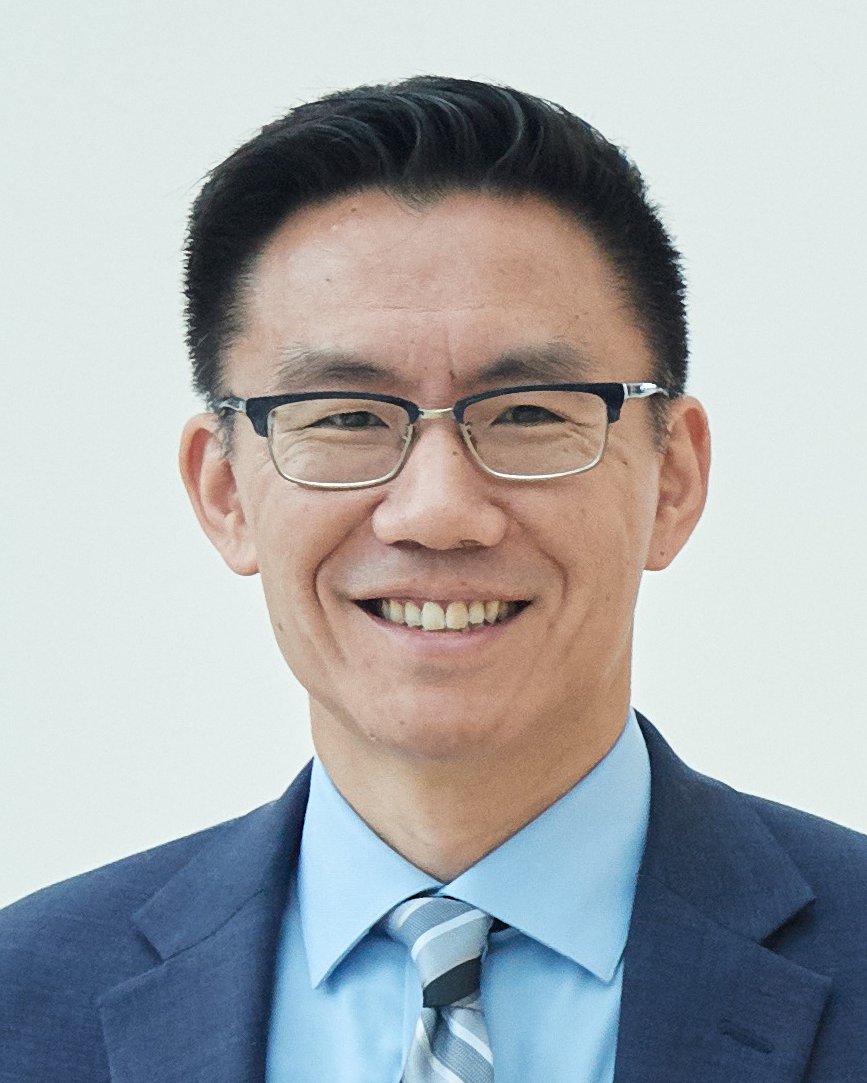
Andy J. Minn
Department of Radiation Oncology
Abramson Family Cancer Research Institute
Mark Foundation Center for Immunotherapy, Immune Signaling, and Radiation
Perelman School of Medicine, University of Pennsylvania
Philadelphia, United States
Dr. Andy Minn is a Professor in the Department of Radiation Oncology and an Investigator in the Abramson Family Cancer Research Institute at the University of Pennsylvania. He is also Director of the Mark Foundation Center for Immunotherapy, Immune Signaling, and Radiation, and a project member in the Parker Institute for Cancer Immunotherapy. He received his MD and PhD from the University of Chicago and finished his residency in radiation oncology along with his post-doctoral training at Memorial Sloan-Kettering Cancer Center. His research seeks to understand key mechanisms of cancer immunotherapy resistance. Specifically, his work focuses on the role of pattern recognition receptors and interferon signaling pathways, which are pathways that are typically activated when normal cells become infected with a virus. Surprisingly, cancers and many cancer therapies also can activate these pathways, prompting an interest in understanding how this happens, the impact on anti-tumor immunity, and its clinical significance. An overarching goal is to translate this understanding to better inform the design of clinical trials. Dr. Minn’s work has been published in prestigious scientific journals such as Cell and Nature. He is also a member of the American Society for Clinical Investigators (ASCI).

Teresa Palomero
Pathology and Cell Biology at CUIMC
Institute for Cancer Genetics
Columbia University
New York, United States
Dr. Palomero is a researcher in the field of leukemia and lymphoma genomics at Columbia University. She obtained her PhD on Biochemistry and Molecular Biology at the University of Oviedo (Spain). She then moved to Boston where she did her postdoctoral work in the laboratory of Dr. Thomas Look, working on the regulation of transcription factor oncogenes in T-cell acute lymphoblastic leukemia (T-ALL).
Dr. Palomero joined Columbia University in 2005, where she initially worked on T-ALL implementing the integrative use of gene expression profiling, ChIP-on-chip and ChIP-seq analysis for the dissection of the oncogenic programs responsible for the transformation of T-cell progenitors (PNAS 2006; Nat Med 2007; PNAS 2009; Nat Med 2009; Nat Med 2012). She pioneered the use of next generation sequencing approaches to identify novel mutations associated with T cell malignancies -including those in the PHF6 gene (Nat Genet 2010) and the NT5C2 mutations associated with chemotherapy resistance in T-ALL (Nat Med 2013) and the RHOA G17V and FYN mutations in Peripheral T-cell Lymphomas (Palomero et al. Nat Genet 2014)- and to analyze clonal evolution in ALL (Oshima et al., PNAS 2016).
Since 2014, she has developed an independent program in the field of mature T-cell malignancies, including Peripheral T-cell lymphoma (PTCL). Her research focuses on the molecular analyses of the genomic landscape of PTCL, the generation of preclinical models for dissecting the interaction between tumor and microenvironment and the development of experimental therapeutics for this disease. Her group has already established groundbreaking models in the field of PTCL, reflected by high impact publications in Nature Genetics (da Silva Almeida et al., 2015), PNAS (Abate et al., 2017), Cancer Cell (Cortes et al., 2018) and Nature Cancer (Moon et al., 2021).
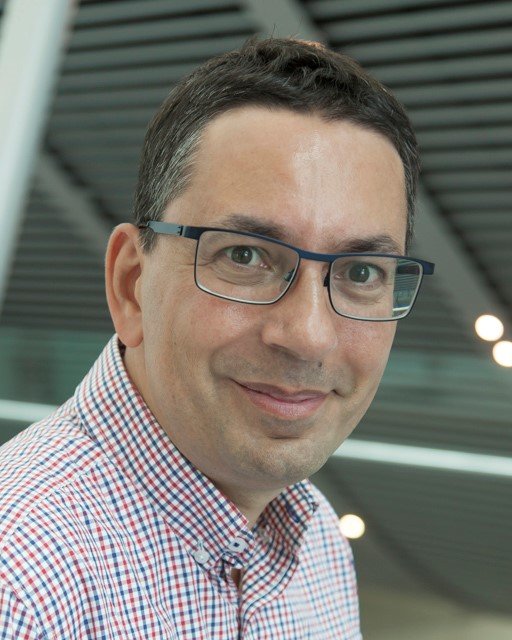
Caetano Reis e Sousa
Immunobiology Laboratory
The Francis Crick Institute
London, United Kingdom
Caetano Reis e Sousa obtained a BSc(Hons) in Biology in 1989 from Imperial College, London, and a DPhil in Immunology in 1992 from Oxford. He subsequently trained as a postdoctoral fellow at the National Institutes of Health, USA, with Ron Germain. In 1998, he returned to the UK to set up a research group at the Imperial Cancer Research Fund, later to become Cancer Research UK’s London Research Institute. In 2015, the London Research Institute was subsumed into The Francis Crick Institute where Caetano Reis e Sousa is currently an Assistant Research Director and Senior Group Leader, leading the Immunobiology Laboratory. He is also Professor of Immunology in the Department of Medicine at Imperial College and honorary professor at University College London and King’s College London.
Caetano’s research centres on the mechanisms involved in sensing infection, cancer and tissue injury. He has helped to define the cells and pathways involved in innate immune detection of RNA viruses, fungi and dead cells. His scientific contributions have been widely recognised and he is included in the list of Highly Cited Researchers (Thomson Reuters). He won the BD Biosciences Prize of the European Macrophage and Dendritic Cell Society (2002), the Liliane Bettencourt for Life Sciences Award (2008), the Award for Excellence in Basic/Translational Research from the European Society for Clinical Investigation (2011) and the Louis-Jeantet Prize for Medicine (2017). He is a Fellow of the Royal Society (elected 2019), Fellow of The Academy of Medical Sciences (elected 2006), member of the European Molecular Biology Organisation (EMBO; elected 2006) and was made an Officer of the Order of Sant’Iago da Espada by the government of Portugal, his home country, in 2009.

